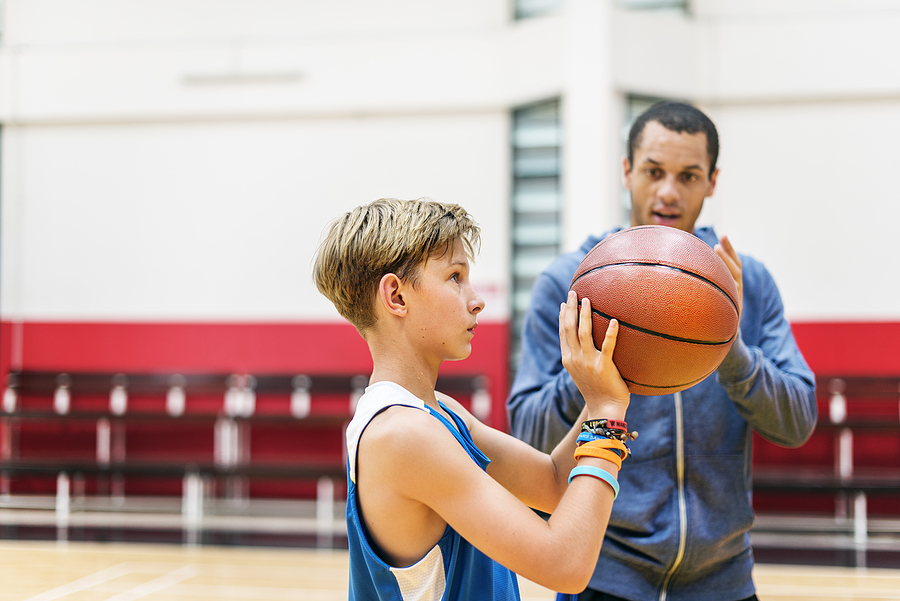10 Places Sports Psychologists Can Work With Kids
Sports psychology is a specialized field that focuses on the mental and emotional aspects of athletic performance. While many people associate sports psychology with professional athletes, the benefits of this discipline extend well beyond the world of adults. Working with kids in various settings, sports psychologists can play a crucial role in enhancing young athletes' mental well-being, motivation, and overall performance. Here are several places where sports psychologists can make a significant impact on children's sports experiences.

1. Youth Sports Leagues and Teams
One of the most direct and common places for sports psychologists to work with kids is within youth sports leagues and teams. Whether it’s soccer, basketball, baseball, or any other sport, young athletes often face unique challenges related to performance anxiety, peer pressure, and parental expectations. Sports psychologists can collaborate with coaches to develop programs that address these issues, helping kids build mental resilience, set realistic goals, and foster a positive mindset.
2. School Athletic Programs
Schools are a hub for youth sports activities, and incorporating sports psychology into school athletic programs can offer invaluable support for young athletes. School sports psychologists can work closely with coaches, teachers, and parents to create a holistic approach to student-athlete development. This may include workshops on goal setting, stress management, and teamwork, as well as individual counseling sessions to address specific mental health concerns.
RELATED: Find a Sports Psychology School Near You
3. Recreational Sports Centers
Beyond organized leagues and school programs, recreational sports centers provide another excellent opportunity for sports psychologists to make a difference in kids’ lives. These centers often host a variety of sports and activities for children of all ages. By offering workshops, seminars, and individual consultations, sports psychologists can contribute to the well-rounded development of young athletes, fostering a positive attitude toward sports and physical activity.
4. Summer Camps
Summer camps focused on sports and physical activities are popular among kids who want to stay active and engaged during their break from school. Integrating sports psychology into these camps can provide a unique and enriching experience for young participants. Sports psychologists can lead group discussions, conduct interactive activities, and offer personalized guidance to help kids develop mental skills that extend beyond the playing field.
5. Academic Institutions
Some educational institutions recognize the importance of mental well-being in student-athletes and have started to integrate sports psychology services into their overall support systems. Sports psychologists in academic settings can collaborate with teachers, coaches, and parents to create an environment that nurtures both academic and athletic success. They may also assist in developing strategies for time management, stress reduction, and maintaining a healthy balance between school and sports commitments.
6. Community Centers and Youth Organizations
Community centers and youth organizations often serve as gathering places for children from diverse backgrounds. Integrating sports psychology into these settings can contribute to the overall well-being of young community members. By offering workshops on resilience, self-esteem, and goal-setting, sports psychologists can help kids build a strong foundation for success in sports and life.
7. Sports Camps and Clinics
Specialized sports camps and clinics focus on skill development in specific sports. Sports psychologists can play a vital role in these settings by addressing the mental aspects of performance. Whether it’s a basketball shooting clinic or a soccer skills camp, sports psychologists can provide valuable insights on concentration, motivation, and handling pressure, helping young athletes reach their full potential.
8. Youth Development Programs
Youth development programs encompass a wide range of activities designed to promote personal growth and life skills in children. Integrating sports psychology into these programs can enhance their effectiveness by addressing the unique challenges faced by young athletes. By teaching resilience, emotional regulation, and effective communication, sports psychologists can empower kids to navigate both the triumphs and setbacks of sports and life.
9. Pediatric Sports Medicine Clinics
Pediatric sports medicine clinics focus on the overall health and well-being of young athletes, including both physical and mental aspects. Sports psychologists working in these clinics can collaborate with medical professionals to provide comprehensive care. They may address issues such as injury recovery, rehabilitation, and the psychological impact of physical setbacks, helping kids maintain a positive attitude and commitment to their sport.
10. Online Platforms and Apps
In today’s digital age, online platforms and apps have become increasingly popular for delivering mental health and performance enhancement services. Sports psychologists can leverage these platforms to reach a broader audience of young athletes. Through webinars, virtual workshops, and interactive apps, they can provide valuable guidance on mental skills training, goal setting, and overcoming challenges.
LEARN MORE: Discover Sports Psychology Degrees


- Where Are Sports Psychologists Most Needed? - May 1, 2024
- How Hard is it to Become a Sports Psychologist? - February 23, 2024
- 10 Places Sports Psychologists Can Work With Kids - January 26, 2024

